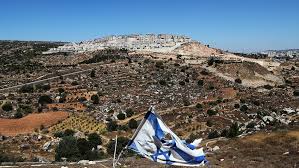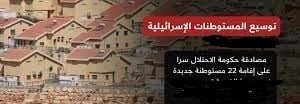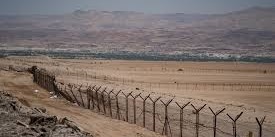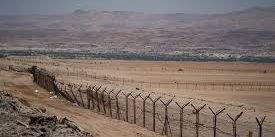By: Madeeha Al-A’raj
The National Bureau for defending land and resisting settlements ( nbprs ) stated in its latest weekly report , that , reports and information indicate that the Israeli Government headed by Bennett has agreed with the settlers to maintain the agreement signed between the former PM Netanyahu and the settler leaders regarding the approval of settlement construction. In a meeting that included the Minister of Internal Security, Ayelet Shaked, and members of the West Bank Settlements Council, agreed to continue the settlement policy as it was in the previous government, and that the “Higher Council for Planning and Building” meets every 3 months in the Civil Administration to ratify more new settlement units. According to the understandings reached between parties at the new government coalition, the status quo will be preserved in everything related to settlement, as settlement projects will be updated every 3 months through the periodic meeting of the Higher Planning Council of the Civil Administration. “We trust and rely on Minister Shaked, and we hope that this government will be supportive of the settlement project,” said David Lahyani, head of the West Bank Settlements Council, after meeting with the Minister of Interior.
In addition, Ayelet Shaked said in a recent interview with “Israel Today” newspaper that the new government will not change the classification of areas in the West Bank from C to A or B, even if there is an American demand on that, and the government will not freeze settlement in the West Bank, and certainly not in Jerusalem. Shaked played down the opposition of the alternative prime minister and foreign minister, Yair Lapid, to the legalization of the “Aviatar” outpost, saying that Bennett, and Defense Minister Benny Gantz would commit to the agreement with the settlers.
In translation of the understandings between the government and settler leaders, the occupation authorities announced last week the seizure of large areas of the lands of the Qarawat Bani Hassan and Derastia towns, west of Salfeet. Sources in the municipalities of Qarawat Bani Hassan and Derastia stated that there is a plan to expand the “Yakir and Nofim settlements”, which are built on citizens’ lands, with an area of more than 8,500 dunams. Moreover, the occupation authorities re-razed a settlement road from Hawara camp, south of Nablus to the Rojeeb village, with a length of about 2.5 km. Two weeks ago, the occupation authorities demolished 25 homes and a mosque near the aforementioned area in the Rojeeb village.
As for house demolition and ethnic cleansing trends, the occupation authorities notified the demolition of a 4-storey residential building in the Shu’fat town in the occupied city of Jerusalem, and gave its residents two weeks to evict. The building is 200 m2 away from “Ramat Shlomo” settlement, and the occupation authorities have been claiming to demolish it since 2005, forcing its residents to close it with bricks for several years, but in 2015 they returned to their places of residence.
The ethnic cleansing and homes demolishing policies arouse wide international reactions. In a report issued by the UN Humanitarian Affairs Mission “OCHA”, it was stated that the occupation authorities have demolished no less than 421 Palestinian-owned buildings since the beginning of this year, including 130 donor-funded buildings. The report indicated that the demolitions led to the displacement of 592 people, including about 320 children, throughout the West Bank. It added that this represented an increase of 24% in the number of targeted buildings, an increase of nearly 110 percent in targeting buildings funded by donors, and an increase of more than 50% in the number of displaced population compared to the corresponding period of the year 2020.
For its part, the International Committee of the Red Cross considered the Israeli army’s demolition of the Humsa Al-Fuqa village in the northern West Bank as ‘undermining human dignity’. The committee called on Israel to ensure that ‘the Palestinian population in the territories it occupies lives as normal a life as possible, and in accordance with their laws, culture and traditions.
The EU stressed that the Israeli settlement policy is illegal under international law, as well as the unilateral measures such as forced transfers, evictions, demolition and confiscation of homes, which will only lead to the already tense situation and more violence and human suffering, calling on the Israeli authorities to stop such violations immediately, and to provide permits suitable for legal construction and development of Palestinian communities.
In Jerusalem, with the clear insistence of the occupation municipality to implement the plan of demolishing the Al-Bustan Neighborhood, expel its 1,550 residents, and remove them from the vicinity of Al-Aqsa Mosque. The occupation municipality calls on the Palestinians to evacuate 100 apartments, which it describes as illegal, in favor of the so-called “King’s Garden project”, which the municipality is working on. Hundreds of millions of shekels were allocated for its establishment in the Al-Bustan Neighborhood in order to change the reality in the area through the establishment of Talmudic paths, Jewish synagogues, and open biblical museums, in which landmarks and symbols are displayed “as if they are from the era of the alleged temple, and to demonstrate the existence of a Jewish civilization in the area,” said the Deputy Mayor.
The occupation municipality handed orders to demolish 100 homes in the neighborhood in 2 phases, the first of which is 17 homes, and it gave their owners 21 days to implement the self-demolition orders, but the residents refused to do so, which prompted the municipality’s crews to demolish a commercial facility belonging to the Rajabi family in the neighborhood. As for the second phase, the occupation municipality gave the residents until mid-August to obtain the necessary licenses, bearing in mind that the municipality does not grant Jerusalemites any building permits.
 المكتب الوطني للدفاع عن الارض ومقاومة الاستيطان منظمة التحرير الفلسطينية
المكتب الوطني للدفاع عن الارض ومقاومة الاستيطان منظمة التحرير الفلسطينية




